BYD Seal VS Peugeot 208 – Specs, Efficiency & Price Comparison
Find out now which car fits your needs better!
The BYD Seal (Sedan) is powered by a Electric engine and comes with a Automatic transmission. In comparison, the Peugeot 208 (Hatchback) features a Petrol, Electric or Petrol MHEV engine and a Manuel or Automatic gearbox.
When it comes to boot capacity, the BYD Seal offers 400 L, while the Peugeot 208 provides 352 L – depending on what matters most to you. If you’re looking for more power, you’ll need to decide whether the 530 HP of the BYD Seal or the 156 HP of the Peugeot 208 suits your needs better.
There are also differences in efficiency: 16.60 kWh vs 14.10 kWh4.50 L. In terms of price, the BYD Seal starts at 40300 £, while the Peugeot 208 is available from 20200 £.
Compare all the key specs now and find out which model fits your lifestyle best!
BYD Seal
The BYD Seal represents a sleek fusion of innovative technology and stylish design, setting it apart in the competitive electric vehicle market. With its aerodynamic silhouette and premium interior finishes, the car offers a driving experience that is both comfortable and exhilarating. Enthusiasts are particularly impressed by the seamless integration of advanced features that prioritise safety and convenience.
details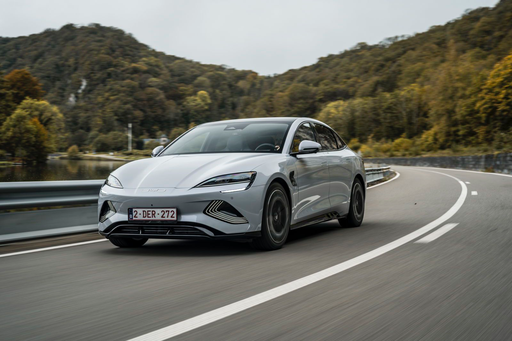 @ press.bydauto.be
@ press.bydauto.be
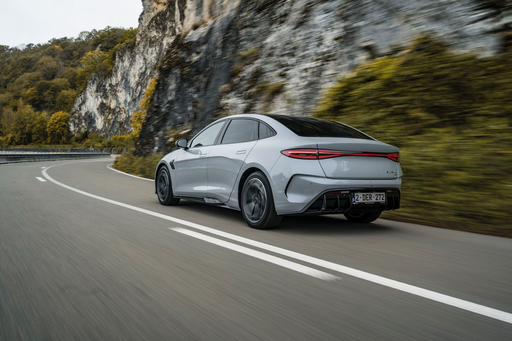 @ press.bydauto.be
@ press.bydauto.be
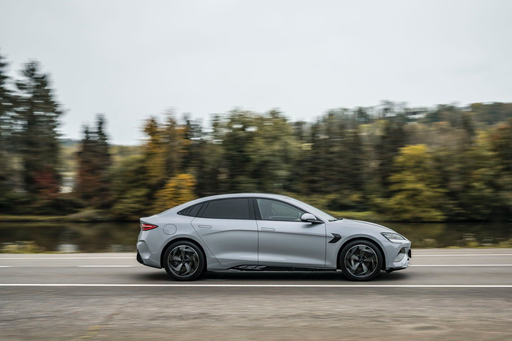 @ press.bydauto.be
@ press.bydauto.be
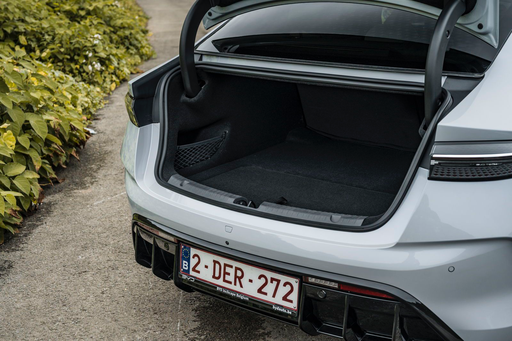 @ press.bydauto.be
@ press.bydauto.be
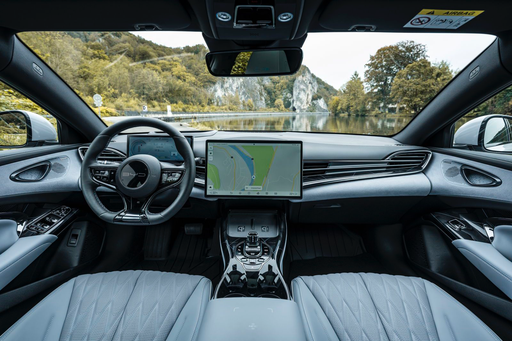 @ press.bydauto.be
@ press.bydauto.be
Peugeot 208
The Peugeot 208 exudes a distinctive French charm, combining sleek lines with an assertive stance on the road. Inside, it offers a modern and sophisticated cabin, complete with intuitive technology and high-quality finishes to enhance the driving experience. Its agile handling and efficient performance make it a delightful choice for both city commuting and longer journeys.
details @ www.media.stellantis.com
@ www.media.stellantis.com
 @ www.media.stellantis.com
@ www.media.stellantis.com
 @ www.media.stellantis.com
@ www.media.stellantis.com
 @ www.media.stellantis.com
@ www.media.stellantis.com

|

|
|
|
|
Costs and Consumption |
|
|---|---|
|
Price
40300 - 43700 £
|
Price
20200 - 35100 £
|
|
Consumption L/100km
-
|
Consumption L/100km
4.5 - 5.2 L
|
|
Consumption kWh/100km
16.6 - 18.2 kWh
|
Consumption kWh/100km
14.1 - 15.4 kWh
|
|
Electric Range
520 - 570 km
|
Electric Range
362 - 432 km
|
|
Battery Capacity
-
|
Battery Capacity
46 - 51 kWh
|
|
co2
0 g/km
|
co2
0 - 117 g/km
|
|
Fuel tank capacity
-
|
Fuel tank capacity
44 L
|
Dimensions and Body |
|
|---|---|
|
Body Type
Sedan
|
Body Type
Hatchback
|
|
Seats
5
|
Seats
5
|
|
Doors
4
|
Doors
5
|
|
Curb weight
2055 - 2185 kg
|
Curb weight
1165 - 1530 kg
|
|
Trunk capacity
400 L
|
Trunk capacity
309 - 352 L
|
|
Length
4800 mm
|
Length
4055 mm
|
|
Width
1875 mm
|
Width
1745 mm
|
|
Height
1460 mm
|
Height
1430 mm
|
|
Payload
446 kg
|
Payload
380 - 430 kg
|
Engine and Performance |
|
|---|---|
|
Engine Type
Electric
|
Engine Type
Petrol, Electric, Petrol MHEV
|
|
Transmission
Automatic
|
Transmission
Manuel, Automatic
|
|
Transmission Detail
-
|
Transmission Detail
Schaltgetriebe, Automat. Schaltgetriebe (Doppelkupplung)
|
|
Drive Type
Rear-Wheel Drive, All-Wheel Drive
|
Drive Type
Front-Wheel Drive
|
|
Power HP
313 - 530 HP
|
Power HP
101 - 156 HP
|
|
Acceleration 0-100km/h
3.8 - 5.9 s
|
Acceleration 0-100km/h
8.3 - 10.9 s
|
|
Max Speed
180 km/h
|
Max Speed
150 - 200 km/h
|
|
Torque
360 - 670 Nm
|
Torque
205 - 270 Nm
|
|
Number of Cylinders
-
|
Number of Cylinders
3
|
|
Power kW
230 - 390 kW
|
Power kW
74 - 115 kW
|
|
Engine capacity
-
|
Engine capacity
1199 cm3
|
General |
|
|---|---|
|
Model Year
2023
|
Model Year
2023 - 2025
|
|
CO2 Efficiency Class
A
|
CO2 Efficiency Class
D, A, C
|
|
Brand
BYD
|
Brand
Peugeot
|
BYD Seal
The BYD Seal: An Electrifying Presence on the Road
Amidst the growing popularity of electric vehicles (EVs), the BYD Seal stands out as a compelling choice. With its sleek saloon design and a plethora of cutting-edge features, this model holds its own in the competitive market of eco-conscious automobiles.
Technical Specs that Speak Volumes
The BYD Seal comes in two key variants, each offering a distinct driving experience yet retaining a common emphasis on performance and efficiency. The power output ranges from a robust 313 PS to an exhilarating 530 PS, ensuring that whether you choose the rear-wheel drive or the all-wheel-drive option, you won't be short of thrills.
Performance enthusiasts will also appreciate the remarkable acceleration capabilities; the Seal can go from 0 to 100 km/h in as little as 3.8 seconds. Complementing its acceleration is its astounding maximum torque, reaching up to 670 Nm, making it adept at handling various driving conditions.
Efficiency Meets Innovation
BYD has engineered the Seal to optimise energy consumption without compromising on performance. The car boasts a commendable energy consumption range of 16.6 - 18.2 kWh/100km, reflecting its efficiency-focused design. Coupled with an impressive electric range of up to 570 km, the Seal is poised for longer journeys without frequent recharging interruptions.
Design and Comfort
The BYD Seal's aesthetic appeal is underscored by its sleek saloon body and precise dimensions: 4800 mm in length, 1875 mm in width, and standing at a height of 1460 mm. These dimensions create a dynamic yet spacious presence on the road, ensuring both an aerodynamic performance and a comfortable interior for up to five passengers.
Inside, the Seal is designed with driver and passenger comfort in mind, featuring a well-crafted interior and advanced technology to enhance the driving experience. The boot offers 400 litres of space, catering to practical needs without compromising on style.
Innovative Features for a Modern Drive
The Seal doesn’t just rely on its electric credentials to make an impact. BYD integrates a host of modern technologies and safety features, ensuring that the driving experience is both innovative and secure. The inclusion of a single-speed reduction gear contributes to a smooth driving experience, enabling efficient transitions in speed.
Safety is further assured with the Seal's high CO2 efficiency rating of class A, underlining its efficacy as a sustainable mode of transport that does not contribute to emissions. Given these progressive features, it's clear that the BYD Seal aligns with the evolving expectations of modern drivers looking for an eco-friendly yet high-performing vehicle.
Conclusion: Future-Ready Efficiency
With a competitive price range starting from €44,990, the BYD Seal represents excellent value for those seeking a blend of performance, efficiency, and modern technology. As sustainable transportation becomes a priority globally, the Seal positions itself as a pioneering force in the electric vehicle market, offering a future-ready driving solution that can meet the needs of today's discerning car buyers.
Peugeot 208
A Glimpse into the Future: The New Peugeot 208
The Peugeot 208, with its sleek design and innovative features, continues to set benchmarks in the automotive industry. As a hatchback, it seamlessly blends style with practicality, offering the perfect solution for urban driving and long-distance travels alike. In this article, we delve into the technical details and innovations that distinguish the latest iterations of the Peugeot 208.
Engine Options: Efficiency Meets Performance
The Peugeot 208 provides an array of engine options catering to different driving preferences. Featuring both petrol Mild-Hybrid technology and full electric powertrains, it offers a versatile range designed to accommodate eco-conscious drivers as well as those who prioritise performance.
With power outputs ranging from 101 PS to 156 PS, and a torque span of 205 Nm to 270 Nm, these machines are meticulously engineered to provide thrilling yet efficient drives. The petrol versions utilise a three-cylinder 1199 cm³ engine, optimising fuel consumption between 4.7 and 5.4 L/100km, while the electric e-208 models boast an impressive range of up to 410 km on a single charge.
Advanced Transmission Systems
The Peugeot 208 models come equipped with an advanced automatic transmission system, employing either a dual-clutch automatic gearbox or a manual transmission, depending on the chosen variant. These systems guarantee smooth gear transitions, thus enhancing driving pleasure and overall efficiency.
Performance and Environmental Considerations
From a performance standpoint, the Peugeot 208 impresses with its ability to accelerate from 0 to 100 km/h in between 8.3 to 10.9 seconds, depending on the model chosen. This level of performance is complemented by a top speed ranging from 150 to 200 km/h, ensuring that the 208 is more than capable of holding its own on the motorway.
With environmental consciousness at the forefront, the vehicle's CO2 efficiency class ranges from A to D, further establishing the Peugeot 208 as a responsible option for modern drivers keen on reducing their carbon footprint.
Comfort and Practicality: A Class Act
The interior of the Peugeot 208 reflects its exterior's stylish flair. It comfortably seats five passengers and offers a boot capacity of 265 to 309 litres, accommodating both city commutes and weekend getaways. Advanced comfort features and a state-of-the-art infotainment system ensure that rides are as enjoyable for passengers as they are for the driver.
Cost Considerations
The Peugeot 208 manages to strike a remarkable balance between cost efficiency and luxury. With prices ranging from €22,950 to €40,825, there is a variant to suit most budgets while still providing a premium experience. Additionally, the monthly costs and costs per kilometre are kept in check, making it an economically sound choice in the long term.
Dimensions and Design: Compact yet Spacious
Measuring 4,055 mm in length, 1,745 mm in width, and 1,430 mm in height, the Peugeot 208 maintains a compact profile that is perfectly suited to tight urban environments. Despite its manageable size, it offers ample space inside, thanks in part to clever design and engineering.
Conclusion: A Future-Proof Choice
The Peugeot 208 is a testament to modern automotive innovation. Whether powered by traditional engines or fully electric powertrains, it consistently delivers on performance, efficiency, and style. The combination of cutting-edge technology and sustainable practices places the Peugeot 208 as a forward-thinking choice for drivers seeking a vehicle that epitomises the best of contemporary motoring.
The prices and data displayed are estimates based on German list prices and may vary by country. This information is not legally binding.
